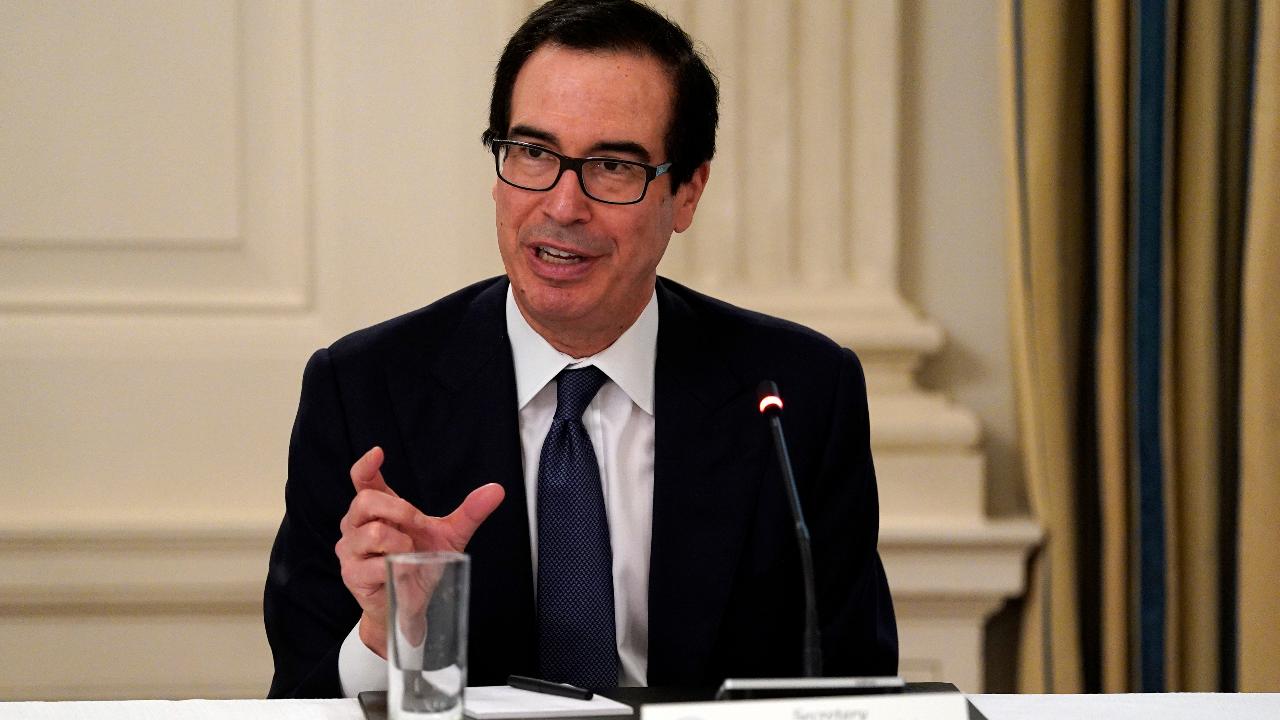Congress could extend coronavirus small business loan forgiveness timeline to 12 weeks, Mnuchin says
There's bipartisan support to extend the PPP forgiveness timeline by 10-12 weeks, Mnuchin said
Get all the latest news on coronavirus and more delivered daily to your inbox. Sign up here.
Lawmakers could extend the time frame for small businesses to spend the coronavirus aid they received through the $660 billion Paycheck Protection Program, Treasury Secretary Steven Mnuchin said Thursday.
"One of the things we are working with Congress on, and there is bipartisan support, is lengthening the eight-week period," Mnuchin said during an interview with The Hill. "There is bipartisan support to extend that to 10 or 12 weeks ... That's definitely something we want to fix."
MARK CUBAN CALLS FOR DEPRESSION-ERA FEDERAL JOBS PROGRAM TO REVIVE US ECONOMY
Mnuchin acknowledged that some restaurant groups have asked for the timeframe to be extended to 24 weeks.
The Senate is considering legislation that would double the amount of time businesses have to spend the money to 16 weeks, and House Democrats are expected to bring a similar bill to the floor next week.
In a video posted to Twitter this week, Sen. Marco Rubio, chairman of the Senate Small Business Committee, said Senate Republicans are trying to pass a stand-alone bill to extend the PPP loan. The Florida Republican said he expected the bill to receive "99 or 98 votes."
DESPITE PPP LOANS, SOME SMALL BUSINESSES ARE CHOOSING TO STAY CLOSED - HERE'S WHY
“We are going to change PPP so that if you got a PPP loan, you have 12 or 14 or 16 weeks to spend the money on payroll,” Rubio said. “Still the same purpose, just some more flexibility because the crisis has changed.”
Under the current rules, recipients of the government-backed aid must spend the money within eight weeks, meaning small business owners who received the earliest loans must spend the funds by May 29.
If at least 75 percent of the money goes toward maintaining payroll — including salary, health insurance, leave and severance pay — the federal government will forgive it.
WILL YOU GET A SECOND STIMULUS CHECK? HERE'S WHAT WE KNOW
The remaining 25 percent can be spent on operating costs like rent and utilities, but may not go toward mortgage principal or pre-payments. Money spent on nonqualifying expenses must be repaid at an annual rate of 1 percent within two years. No payments are required during the first six months.
Although some advocacy groups have pushed for the 75 percent requirement to either be changed or eliminated entirely, arguing that it could hurt tens of thousands of borrowers who cannot meet the threshold, Mnuchin defended the restriction.
"It's called the Paycheck Protection Program, it's not called the overhead protection program," he said.
As of Monday night, about 4.3 million loans worth more than $513 billion had been distributed, leaving roughly $97 billion left in the pot.




















